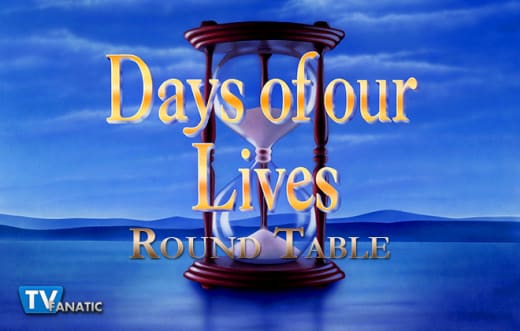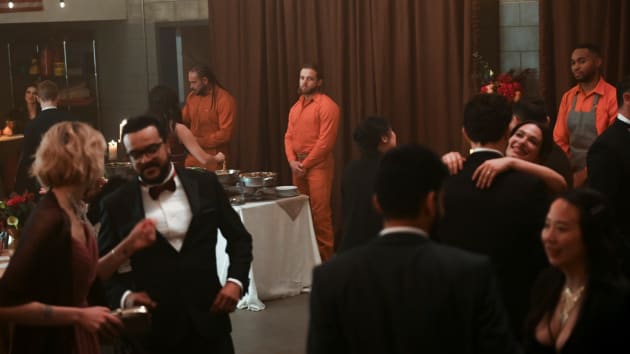Is cancel culture unique to our day in age? Yes and no.
Ever wonder how the Golden Age of Hollywood might have fared if studios had been forced to list the crimes, misdemeanors, and shocking prejudices of celebrities 100 years ago?
Would The Gold Rush or The Great Dictator have made as much money with a disclaimer reminding us about Charlie Chaplin’s multiple teenage wives?


Would Errol Flynn have become the action hero of his day if people knew about his statutory rape charges or his bugged house that let him spy on all his guests in various states of undress?
Even down closer to the modern day, would we have allowed Alfred Hitchcock or Stanley Kubrick Shelley Duvall) to abuse women verbally, and would talk of their genius be censored for sensitive ears?


Would a hypercritical social consciousness have doomed early Hollywood for its politically incorrect messages and nightmare celebrity scandals?
And the simple answer is, of course, Hollywood’s Golden Age would have survived just fine…
Because we were there.
The Conscience of Early Hollywood
We were boycotting films. We were canceling celebrities. And we were definitely wagging our fingers at the mixed messages coming out of Hollywood because the corruption of innocent children was on everybody’s mind.
They actually had a name for this “network” of people imposing social standards: The Hays Code, which came around by the 1930s because of all the rampant perversity in Hollywood.
Not just the nudity and sexual language of the 1920s, mind you, but, of course, the rumors of partying and overindulgence going on behind the scenes.


In the words of museum curator Chelsey O’Brien, “There were off-screen stories of drugs and alcohol and partying and overindulgence, and then the industry was rocked by really huge scandals…the death of Olive Thomas, the murder of William Desmond Taylor, and the alleged rape of Virginia Rappe by Roscoe ‘Fatty’ Arbuckle.”
The result of all this “social networking” (not a social media phenomenon, mind you, not yet!) was to start cracking down on all the filth in film.
But along the way to taming the egregiously unregulated motion picture industry, we discovered something profound.
Great art outlives the artist.
An artist is just one person, one person limited by their self-destructive nature and moral flaws. But the art they produce can live for ages, even beyond the scandal, into a new generation of oblivious moviegoers.
To write another article lamenting how social media shaming is out of control is to miss the point. We’ve always been social shaming through whatever media was available.
Canceling Celebrities – A Timeless Tradition


Before the internet, we used books, newspapers, placards, and demonstrations. We even used word of mouth during our weekly coffee klatch conversations.
To anyone who thinks Old Hollywood let their stars get away with anything, one only has to remember the social ramifications celebrities paid when they were caught with their pants down.
Errol Flynn’s career never recovered after his scandals; he died thousands of pounds in debt.
Charlie Chaplin’s popularity declined by the 1940s not only because of his communist sympathies but also because of his scandalous personal life. He was forced to leave the United States by the 1950s.
Even social banditry came with consequences. By the 1970s, outspoken celebrities like Jane Fonda paid the price for having contrary political opinions.
To this day, many moviegoers (usually veterans or military folks) still refer to her as “Hanoi Jane” because of the time she traveled to Hanoi, Vietnam, to protest the war.


Celebrities Are Not Above the Law – Justice is Just Delayed
Celebrities have never been immune to criticism or even karmic revenge.
The fact that celebrities like Bill Cosby, Diddy, and R. Kelly were caught twenty years too late should not invalidate the fact that they were caught.
Ultimately, they could never silence the voices that cried out for justice.
They couldn’t outlive a new generation of showbusiness that was rising, one that refused to stop the investigation, even twenty years later.
Go ahead and watch as Diddy’s empire falls. Watch Bill Cosby flail and rant about racism, in denial until his dying breath.
Watch the Vince McMahon documentary and laugh at the old man’s arrogance, every bit as concise and high-falutin as every trainwreck WWE interview he ever did.


Even in death, Hugh Hefner couldn’t escape the torment and humiliation of dozens of angry Playgirls who spit on his legacy.
Now, after all the comeuppance finishes and we finally see justice served, we have only one thing left to say.
It’s Not What You Take – It’s What You Leave Behind
What did these brilliant, tortured, and devious minds leave behind for future generations?
What was the point of it all? What could we possibly learn from their meteoric rise and cataclysmic crash?
The answer was always in front of us. They left their artwork for us, an indelible mark on the history of cinema and television.


They did exactly what we asked for: tell a story, capture our imagination, and film something extraordinary worth watching and sharing with others. The artwork they helped to create will survive and will outlive them.
One hundred years later, we are emotionally detached from the scandals of Errol Flynn, Chaplin, and Clara Bow.
These scandals have turned from gossip to trivia. No one from back then is alive to tell us how we ought to feel about them. We just read them as objectively as we would a book about a fictional character.
The dirty deeds of celebrities’ personal lives are just the footnotes or, if you will, the “deleted clips” that accompany the art exhibit.
Motion pictures and television episodes are nothing but art to be experienced. They have nothing to do with the celebrity worship we foist upon these deeply flawed human beings.
Because, in the end, the zeitgeist they helped to create was not about them. It was about us.


Zeitgeist is About Us, Not Them
It was about us as a species. Our generation, our feelings, and our moral compasses.
We, as human beings, write about what we live through, what we foresee happening, and what it’s like to be alive right now in the 21st century.
Artists from the 20th and 19th centuries did the same. They gave us a glimpse into their worlds.
It’s pointless now to reminisce about the virtues or scruples of, say, Gustave Flaubert, the writer. No one cares about Flaubert, the celebrity. The point of the discussion should be how we feel about his book, Madam Bovary. That’s what will be important to students.
That’s the only thing that matters, as hundreds of years have passed since the book was written. That’s what matters to an educator trying to elicit critical thinking from a classroom.
What does the artist inspire? We want to hear your essays on the story and how the author’s life may have influenced it for better or worse – not just that the author made your stomach feel funny.


While it’s hard to visualize it now, one day, our descendants will stop caring about Diddy and his baby oil parties, Weinstein’s pants-dropping, and Louis C.K.’s sexual harassment charges.
Society may improve and make changes now in light of these cases. But the laws will stay intact, even while the names become less important.
And even if you think you will never stop hating Rob Schneider for his political views or Ellen Degeneres for her toxic behind-the-scenes behavior, I guarantee you, your children, and your children’s children will one day not care in the slightest.
They may even check out Deuce Bigalow: Male Gigolo on DVD because that is the only art Mr. Schneider chose to leave behind. How…unfortunate.
To me, the answer to “How am I supposed to feel about Bill Cosby or Diddy Mel Gibson, or Joss Whedon, or Neil Gaiman, or David Letterman or whoever?” boils down to this.
One of my favorite songs is “Imagine” by John Lennon. It’s a daydream of what paradise must look like and sound like. The chords are heavenly, and even while the lyrics are material, they are almost communistic in implication.


Lennon wanted to be a man of peace who inspired the world to love each other — a world that, through his eyes, was obsessed with war and violence.
The fact that Lennon was a moral failure, a bad father, and a bad husband was part of the artistic experience of listening to Imagine.
When man dreams, he dreams ambitiously of bringing world peace.
But when he lives, he falls short of the dream. His idealism is uncompromising, and in the end, it is his death. Imagine makes me remember John Lennon’s life and art — the tragedy and the triumph.
We can do this little experiment with any celebrity. How did their life influence their art, and how did the art they left behind influence our lives now?
If only we could learn to stop loving them, stop seeing our family in these public figures, and instead pay more attention to the visual arts they create for us to watch, analyze, and discuss.


But How Do We Forgive Troubled Artists?
If this all makes rational sense to you, but you still can’t bring yourself to forgive certain celebrities who have done truly atrocious things, just remember this.
You don’t have to forgive them. Their lives and mistakes are up to the courts to decide.
All human beings are capable of doing great good and great evil.


It sometimes hurts to admit that Bill Cosby did so much good for the black community.
Besides donating millions to support educational opportunities for African Americans, he wanted his show to present positive role models and challenge stereotypes of African American parents and children. He changed the face of television.
In the 1990s, Roseanne Barr and Ellen Degeneres fought major battles with Network Standards and Practices for LGBTQ representation. Their work helped usher in creative freedoms regarding sexual orientation that people take for granted today.
Canceled Tweeter J.K. Rowling has given millions to charity, with a soft spot for homeless children, and campaigns against institutionalizing children in orphanages.


Even the unspeakable names, like Diddy and Jeffrey Epstein, gave obscene amounts of money to charities, universities, and scientists.
The uncomfortable truth is that many disturbed individuals are capable of committing selfless and heroic acts. It’s hard to acknowledge this, and yes, it challenges our perceptions of who a criminal is.
It doesn’t make sense most of the time. All we can really do about it is continue to cheer on heroic deeds while boycotting and shaming evil deeds. It doesn’t help to hate people. Only the terrible deeds they do.
We can always do better and remind other people to do better. We can stay strong as individuals and not let the famous and wealthy confuse our own sense of morality.


Therefore, I propose the best way to handle these scandals is to learn how to honor the art while letting go of the unhealthy celebrity attachment.
Remember, you own your favorite movie and favorite TV series. We all own it collectively. The culture we created and enjoyed — it lives with us.
The memories stay ours, even if they were to remove all shows from streaming and burn the DVDs. You can’t take away memories.
Even if the terrible artist stops getting paid royalties by a court ruling, WE don’t lose anything. We can still remember this perfect snapshot of what it was like to live in such wonderful times. Innocent times. Happy days.


The terrible artist can’t take that away from you. Your favorite movies and TV shows are a part of you and something important you experienced.
Because it was there. Because you lived through it.
You saw it happen, and when you see it, you are instantly transported back to that wonderful time when life made more sense.
And by golly, if morally bereft artists like Michael Jackson or Elvis Presley hadn’t changed the world when they did, then someone else would have done it.


Loving movies, music, and television is about celebrating our own lives — it’s not about the artist.
Having Opinions Can Be a Crime
By all means, if this article rubs you the wrong way, or if you get the feeling I’m defending atrocious celebrities accused of committing heinous acts, then use your free will to report me to the proper channels.
After all, strong opinions have been treated as crimes as long as civilization has existed and as long as the “thought police” have been patrolling.
The Communist Control Act of 1954 outlawed the Communist Party of the United States and criminalized membership or support for the party.
You know…communism. The same political party everyone’s grandson on Facebook is now pushing and meme-ing about.
The Hollywood Blacklist that followed America’s “War on Communism” (from the late 40s to the late 50s) resulted in numerous actors, screenwriters, directors, musicians, and entertainers being unceremoniously canceled, fired, and barred by Hollywood studios.


Their careers were destroyed, and the public shame was out of this world. It was something even worse than “going viral” because the word communist was demonized by the media, and Senator Joseph McCarthy in particular.
Back then, a Twitter-X mob wasn’t ready to help you if you were ratted out!
Imagine one’s political opinions being grounds for job termination or even jail time because you believed something ahead of the time or against the grain.
Are we there yet? Are we slowly “growing” in that direction again? Who knows?
One thing’s for sure. The communist chaser, Joseph McCarthy, started a war with words so intense that even he fell victim to his own rhetoric in time. The Army-McCarthy Hearings turned the tables on McCarthy, who was later censured publicly and shamed out of office.


A victim of the same political witch-hunting he helped introduce!
That’s why you can’t get too attached to celebrities, entertainers, and public figures. They’re hypocrites, charlatans, and holier-than-thou finger-waggers — but only until their own terrible secrets get exposed.
But the art, yes, the shows we watched when we were young and dewy-eyed, they play forever.
What do you think? Is cancel culture worse now than 100 or even 50 years ago? Do you still have nightmares about Roscoe Arbuckle? Let us know in the comments.







